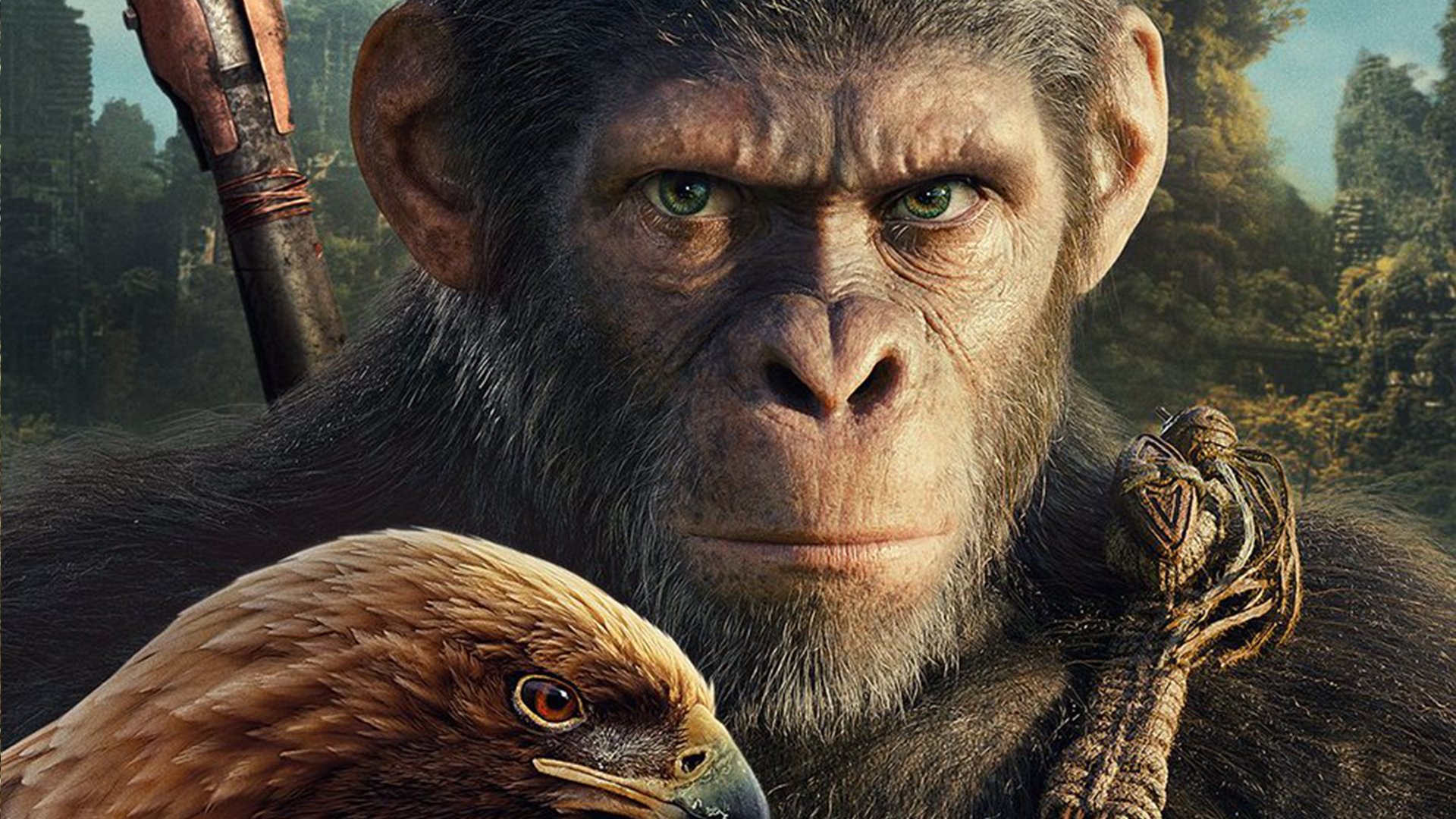Kingdom of the Planet of the Apes' Super Bowl trailer promises a fiery post-apocalyptic civil war
The fourth entry in the Planet of the Apes franchise reboot is nearly here

Sign up for breaking news, reviews, opinion, top tech deals, and more.
You are now subscribed
Your newsletter sign-up was successful
Editor's note: this article has been updated with the correct UK release date of May 10. TechRadar apologizes for the previously incorrect information.
Original story follows.
A new, engrossing Planet of the Apes trailer has landed for the latest movie in the franchise: Kingdom of the Planet of the Apes.
For those who struggle to keep up with all of the Planet of the Apes films so far, Kingdom of the Planet of the Apes is the fourth entry in the rebooted franchise. It's also set 300 years after the events of the last movie, War for the Planet of the Apes. And, although it's the fourth movie, it signals the start of a new trilogy. Yeah, it's not to make your head spin.
The trailer shows us a world in which apes are now the de-facto 'rulers' of Earth, with the human race living in fear of, and being hunted by, their simian counterparts. The movie centers on a new protagonist: Noa (The Stand's Owen Teague), a chimpanzee who doesn't seems to be affiliated to Andy Serkis' former ape protagonist in Caesar, and who is beginning to question ape-kind's dominance of humanity in particular.
It's a view he doubles down on when he befriends Mae (The Witcher's Freya Allan), a human he saves. Scenes play out in the trailer to the ominous voiceover from Proximus Caesar (Kevin Durand), a violent bonobo ruler who wants to rule over humans and apes alike, much to Noa's dismay.
The three previous Planet of the Apes movies in this rebooted franchise – 2011's Rise of the Planet of the Apes, 2014's Dawn of the Planet of the Apes (2014), and 2017's and War for the Planet of the Apes – were all excellent. All three are available on Disney Plus (one of the world's best streaming services) in the UK and Australia, too, so you should check them out if you haven't yet. We have high hopes for Kingdom of the Planet of the Apes, then, and the as-yet-unnamed two movies that'll follow it.
Sign up for breaking news, reviews, opinion, top tech deals, and more.
On of 2024's new movies, Kingdom of the Planet of the Apes arrives in theaters on May 10 in the US and UK.
(NB: Dawn of the Planet... can be streamed on Max in the US, while War of the Planet... is viewable on Fubo. Rise of the Planet... can only be rented or bought stateside).
How does Kingdom of the Planet of the Apes fit in the broader Ape-iverse?
Mild spoilers for the Planet of the Apes movies below.
Struggling to understand where Kingdom of the Planet of the Apes fits in the broader Planet of the Apes-iverse? You're not alone.
Kingdom of the Planet of the Apes is the fourth entry in the rebooted franchise from 20th Century Fox, since acquired by Disney. It's set 300 years after the events of the last movie in the franchise, which was called War for the Planet of the Apes.
How does this fit with the original movies from the 1960s and 1970s? Well, that's tricky. All of the latest movies in the recent Planet of the Apes franchise are set before the original 1968 Planet of the Apes movie starring Charlton Heston. However, let's not forget that these latest movies are, technically, a reboot.
Although all of the Planet of the Apes stories so far – including Tim Burton's 2001 remake – could exist in the same universe, or Api-verse, it might be best to consider all of the major reimaginings of the Planet of the Apes story – which was originally a 1963 novel called La Planète des Singes by Pierre Boulle – as separate continuities.
This would give the new franchise more freedom to diverge from the "future" imagined in the 1960s storyline, changing smaller details or significant events. So it's less about showing us what definitely happened before the original film and what may have happened.
You might also like
- Deadpool and Wolverine trailer breakdown: 10 things you might have missed
- Watch Twisters and Wicked's whirlwind first trailers that debuted during the 2024 Super Bowl
- The Bear season 3 sets June return on Hulu

Becca is a contributor to TechRadar, a freelance journalist and author. She’s been writing about consumer tech and popular science for more than ten years, covering all kinds of topics, including why robots have eyes and whether we’ll experience the overview effect one day. She’s particularly interested in VR/AR, wearables, digital health, space tech and chatting to experts and academics about the future. She’s contributed to TechRadar, T3, Wired, New Scientist, The Guardian, Inverse and many more. Her first book, Screen Time, came out in January 2021 with Bonnier Books. She loves science-fiction, brutalist architecture, and spending too much time floating through space in virtual reality.
